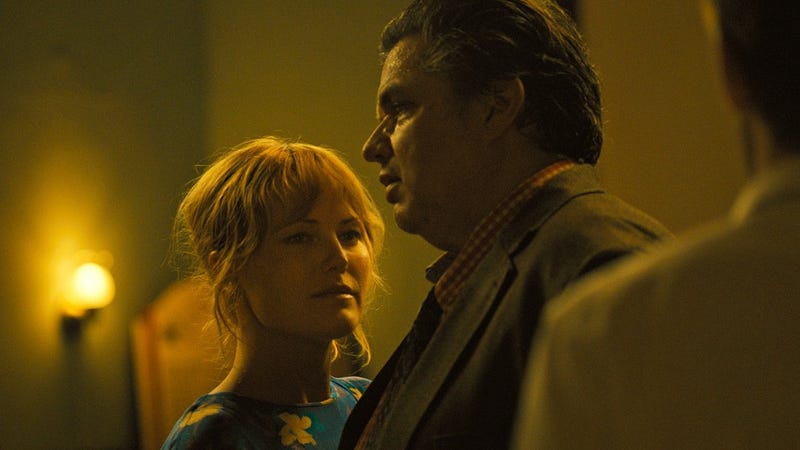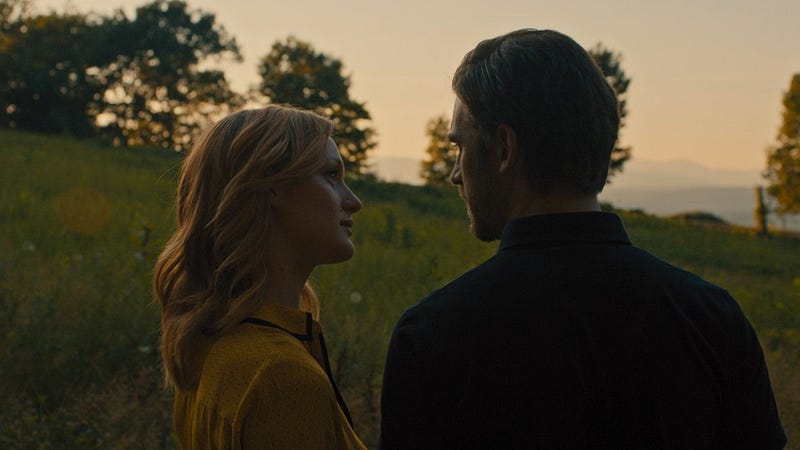
Synopsis:
After James, a blind man, inexplicably regains his vision, he becomes possessed by a drive to make a better life for himself. However, his new improvements, a nicer home, a higher paying job, tailored suits, luxury car, leave little room for the people who were part of his old, simpler life. As his relationships buckle under the strain of his snowballing ambition, it becomes uncertain if James can ever return from darkness.
The ticket of the title refers to a parable the lead James refers to often, a moral lesson that the film itself also tries to impart. A good man, blind from birth, devoted to his wife, son, church, and the community that extends from it. In essence, he is grateful for his lot in life. When his sight is suddenly restored, he becomes a changed man. Unleashed from his piety, he resents the limitations that were placed upon him. Superficiality and selfishness creep into all aspects of his life. He even begins preying on his customers to hike his commissions, to satisfy his growing greed and need to indulge in various forms of excess. He begins an affair with a younger woman and even his best friend Bob (Oliver Platt) is cast aside; being a blind man, he reminds him of of his previous state. It’s very much a character piece, with themes of perspective and vision and an arching parable about being richer with less. His life before his sight was restored was richer in every way, emotionally at least. The Ticket also weaves in story elements exploring blind culture, as well as the effect this transition has upon his wife, whose role in assisting her husband and exerting control over his life is completely undermined.
Dan Stevens (The Guest, Colossal) impresses, crafting distinct versions of this man as well as effectively realizing the transition between the states. It’s often nuanced work and crucial to what works in the film. Malin Akerman (Watchmen, The Final Girls) gives perhaps one of the standout performances of her career, while the great Oliver Platt (Flatliners, Lake Placid) is always a welcome sight and does sterling work. The character they craft certainly elevate the material. Similarly, director Ido Fluk does solid work, striving to craft a interesting world visually, opening us up to the rush of stimuli much as James’ restored sight would, lingering over sights and colors, also imparting a ethereal quality at times.
The Ticket flirts with being an artistic indie, but really can’t shake off the feel of a low budget drama. It hits the notes you expect, offering little in the way of originality. It glosses over too much of what it tries to say, the religious framework giving a loose parable rather than being explored fully. It’s a shame as the talent involved are capable of handling something more weighty and philosophical, rather than such lightweight fare.

The Package
Overall the transfer quality is good. It’s not the most spectacular looking film, but detail, color, and contrast are solid, although some muddiness creeps in with some interior scenes. Blacks are a little lacking. No artifacts are evident.
Extras include a theatrical trailer and a audio commentary with director Ido Fluk and writer Sharon Mashihi.

The Bottom Line
The Ticket serves as an interesting meditation on blind culture, and more significantly as a parable about superficiality, but ironically does so in a way that lacks any real depth. Impressive performances from Stevens and Akerman and direction from Ido Fluk elevate the film, but they’re hamstrung by a script that fails to deliver a more thoughtful examination of these themes.

The Ticket is available on Blu-ray and DVD from June 6th.

